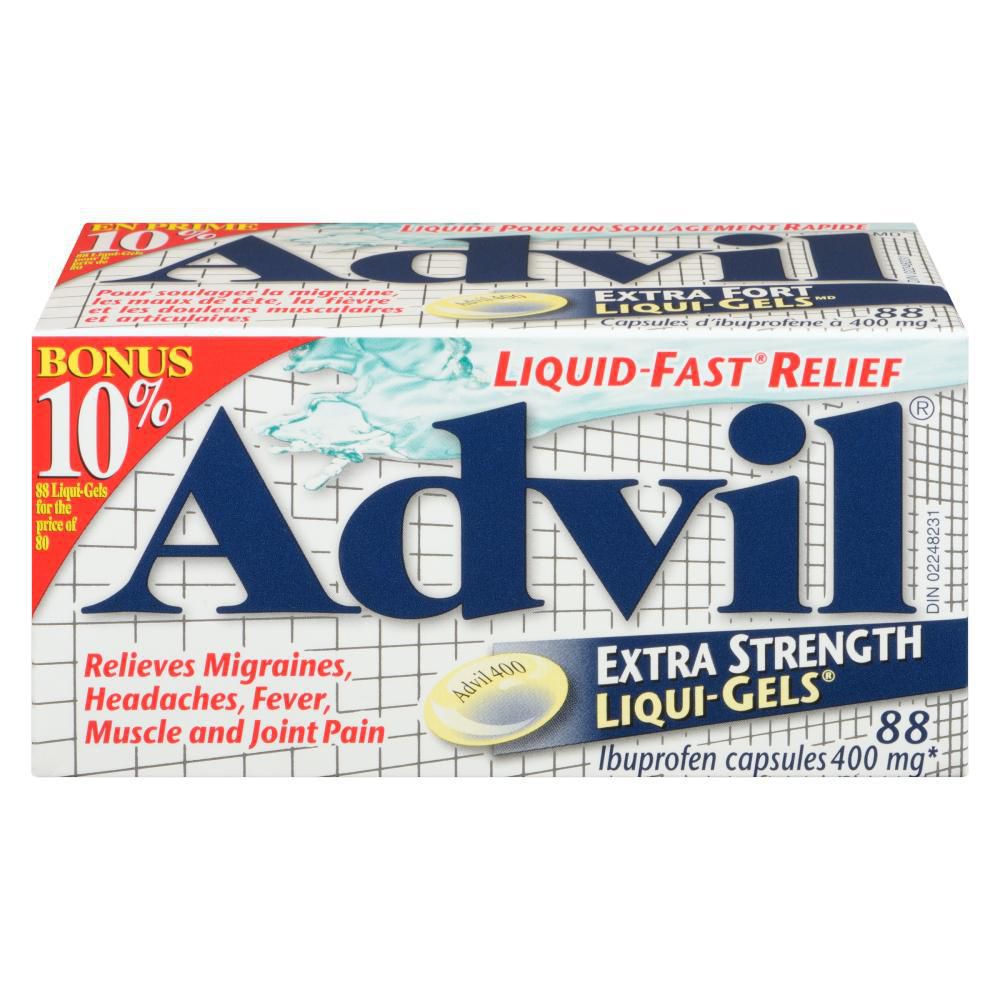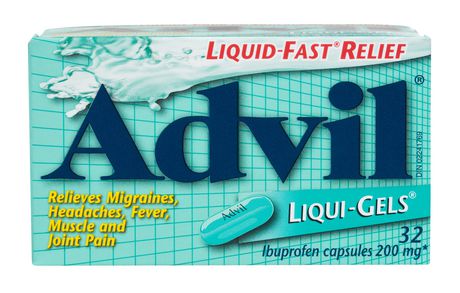



Cardiovascular events (myocardial infarction, stroke).
#Advil liqui gels series#
Several medical publications have evaluated the cardiovascular safety profile of OTC ibuprofenĪ comprehensive review of existing cardiovascular safety data shows that when ibuprofen is used at OTC doses according to label directions, cardiovascular risk is minimal.ĭata from a series of publications suggest that OTC ibuprofen is not strongly associated with an increased risk of: Cardiovascular: Advil presents minimal cardiovascular risk as observed in clinical studies.Take more than directed or for longer than directed (taking ibuprofen at higher doses than the approved OTC dosing and/or for longer than 10 days also increases this risk).Have a history of stomach bleeding, ulcers, or other bleeding problems.Are taking other drugs containing NSAIDs.Consume 3 or more alcoholic beverages per day.Risk of stomach bleeding increases if patients: Studies have shown that higher doses of ibuprofen (and other NSAIDs) are associated with a greater risk of GI side effects (odds ratio 4:6) vs lower (OTC) doses (odds ratio 1:1)Īs indicated in the Advil Drug Facts, ibuprofen, like all NSAIDs, may cause severe stomach bleeding.In a study by Moore et al, more subjects reported significant digestive adverse events for 1 to 7 days with aspirin (7.1%) or acetaminophen (5.3%) than with ibuprofen (4.0%).An epidemiologic study by Lewis et al and a systematic review by Henry and McGettigan found no significant increased risk of serious upper GI toxicity at dosages A recent literature review of OTC doses of ibuprofen found that there was a consistently low risk of serious GI events and that nonserious GI events are probably reversible upon cessation of the drug.Ibuprofen has a favorable GI safety profile at dosages of 800 mg to 1200 mg per day (at OTC doses).Ĭlinical studies have shown that when OTC ibuprofen is taken as directed by the label for no longer than 10 days, there is a low increased risk of stomach complaints or GI bleeding.


 0 kommentar(er)
0 kommentar(er)
